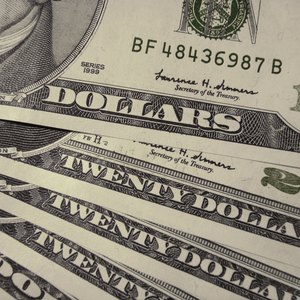
When disaster strikes, you may not be able to get to an ATM machine or your bank may be closed. This reinforces the argument for keeping a stash of emergency cash on hand. And don't forget the coin jar where you put the change from your pockets. You might be surprised to realize that you could have some hefty cash already stashed there.
Emergency Situations
There are two primary kinds of emergencies that people have in mind when doing their planning. The first is a civil or natural disaster emergency, during which normal infrastructure such as bank ATM networks, credit card processing and other forms of electronic payment may break down. The second is a personal emergency, such as a job loss or hospitalization, which may disrupt your income and force you to rely on savings to get by. These issues require very different plans.
Disaster Planning
Many events could keep you from getting access to your cash, such as earthquakes, floods, tornadoes or hurricanes or civil emergencies such as what happened during the 9/11 attacks. A good rule of thumb is to keep cash on hand in five, ten and twenty denominations, as breaking larger bills might be troublesome. For emergency disaster preparedness, keep at least one month of expenses on hand at home. This should more than cover anything that comes up as most of these types of disasters are mitigated within a week or two.
Personal Emergencies
Cash planning for a personal emergency can be harder to prepare for, as a family emergency can last much longer than a civil emergency. Financial expert Suze Orman recommends keeping eight months of your household expenses on hand for emergencies instead of the six months recommended by others. This type of emergency cash fund is usually maintained at a bank or in a CD deposit. Place seven months of expenses in the bank and keep one month of expense money at home in your cash fund for emergencies.
Mobile Cash
Besides keeping cash on hand for emergencies, you might want to consider keeping cash in your vehicle or wallet. If you are traveling in your car and encounter an emergency, having cash can help, especially if you are stranded somewhere without access to banks, ATM machines or credit cards. Set aside at least $100 to $200 in your wallet or in your car that you can replace if you have to use it for an emergency. Set aside your emergency funds in lower denominations, if possible.
References
Writer Bio
Ellis Davidson has been a self-employed Internet and technology consultant, entrepreneur and author since 1993. He has written a book about self-employment for recent college graduates and is a regular contributor to "Macworld" and the TidBITS technology newsletter. He is completing a book on self-employment options during a recession. Davidson holds a Bachelor of Arts in American civilization from the University of Pennsylvania.

